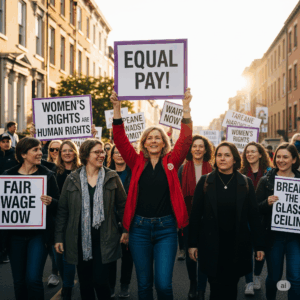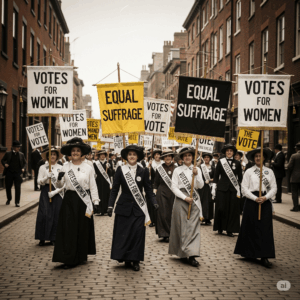A Century of Progress—and Unfinished Work
Women’s Equality Day 2025 is observed on August 26th to commemorate the passage of the 19th Amendment in 1920, which granted women the constitutional right to vote. While it marked a turning point in history, it did not guarantee equal rights for all women. Black women, Native American women, Asian American women, and other marginalized groups continued to face systemic barriers to the ballot box long after 1920.
More than a century later, the day serves not only as a celebration of progress but also as a reminder that equality remains unfinished business. Issues such as reproductive rights, equal pay, and voting access—core to women’s empowerment—are still being contested.
Why Women’s Equality Day Still Matters
In an earlier interview, historian and author Sally Roesch Wagner, founder of the Matilda Joslyn Gage Center for Social Justice Dialogue, explained why Women’s Equality Day is still critical: “We are so far from equality. Looking back at the repression of women in the 19th century—where women lost legal identity after marriage, had no control over their property, and no voice over their own bodies—it’s clear how far we’ve come, but also how far we have yet to go.”
Wagner emphasized that despite progress, equal rights are still not explicitly guaranteed in the U.S. Constitution—making vigilance all the more important.
Lessons From History: How Voting Shapes Policy
The story of the 19th Amendment shows how voting rights impact public policy. Once women secured the vote, lawmakers quickly passed measures like the Sheppard-Towner Maternity and Infancy Protection Act of 1921, which funded childcare and maternal health programs. The Women’s Bureau was also created in 1920 to protect labor rights.
These early examples illustrate that when new groups gain access to the ballot, policies shift in response. However, many women of color still struggled to cast ballots due to poll taxes, literacy tests, and discriminatory laws—barriers only addressed decades later with the Voting Rights Act of 1965.
 Modern Challenges to Voting Rights
Modern Challenges to Voting Rights
Fast forward to Women’s Equality Day 2025, and voting rights are once again under pressure. Proposals like the SAVE Act—recently passed in the House—would require individuals registering to vote to present specific documents, such as passports or birth certificates, in person. While framed as a measure to protect elections, critics argue it could suppress the votes of millions of eligible citizens.
For women who have changed their last names due to marriage, the law presents particular hurdles, since marriage certificates aren’t accepted as proof under the act. Many citizens also lack access to the necessary documents, potentially disenfranchising them.
Adding to the challenge, gerrymandering and mid-decade redistricting—such as recent efforts in Texas—further dilute representation. With women historically voting at higher rates than men, restrictive measures disproportionately threaten women’s political voice.
Defending Voting Rights Today
Activists and lawmakers stress that voting is not only a right but a responsibility to honor those who fought for equality. Representative Rashida Tlaib recently opposed the SAVE Act, arguing: “We need to pass legislation to stop billionaires from buying our elections, not legislation making it harder for people to vote.”
The John Lewis Voting Rights Advancement Act is one such effort. It seeks to restore protections struck down in 2013, prevent discriminatory voting laws, and ensure states cannot restrict voting rights without justification. Though passed by the House in 2021, it stalled in the Senate but has since been reintroduced.
Carrying the Legacy Forward
History shows progress is never linear. Backlash often accompanies steps toward freedom, a reality suffragist Matilda Joslyn Gage knew well. Wagner reflected on Gage’s wisdom: “Don’t worry if you face backlash—that’s the result of your work. The resistance shows how far you’ve come.”
On Women’s Equality Day 2025, the message is clear: equality and voting rights cannot be taken for granted. Protecting them is the responsibility of every generation.
Stay informed on equality and democracy—read more insights on voting rights in top business magazine IMPAAKT.
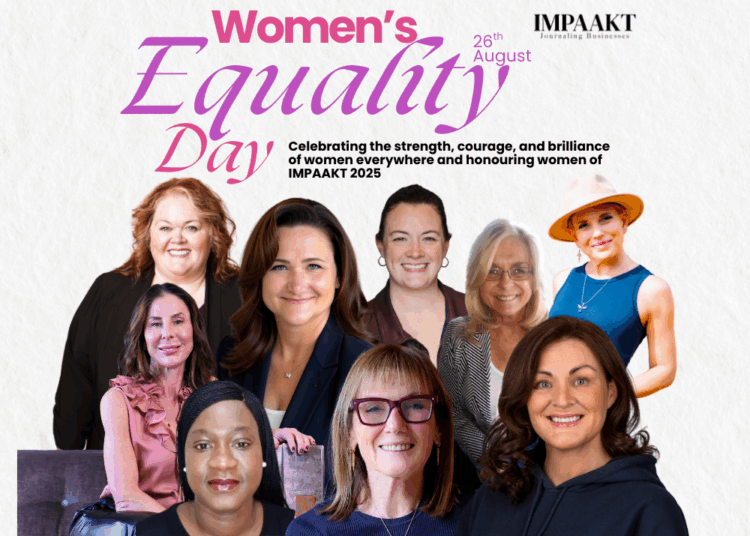
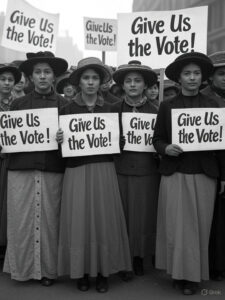
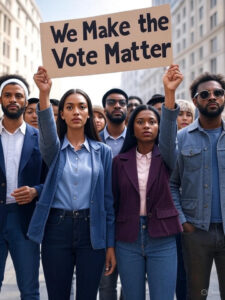 Modern Challenges to Voting Rights
Modern Challenges to Voting Rights